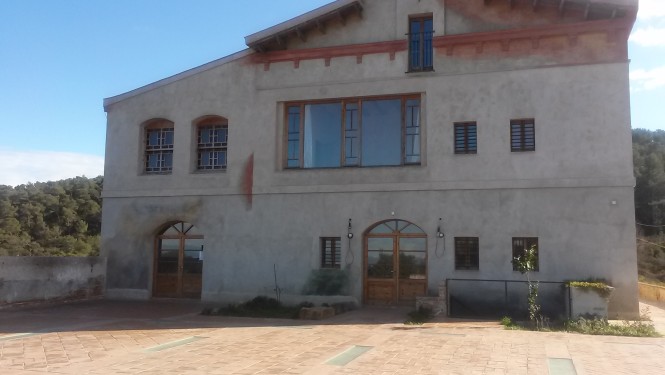
I was privileged to get to attend Burning Man’s European Leadership Summit. This is the first in a short series of posts about some of the issues and discussions that came up.
English may not be the language of Burning Man, but it was the language of Burning Man’s third European Leadership Summit, held last weekend in Barcelona, Spain.
This is more a concession to reality than it is a matter of policy: The European Burner community was represented by people from nations as far flung as Spain, France, Finland, Hungary, and Serbia. It’s convenient for Americans – but not really Burning Man’s fault – that English has become the world’s second language.
But it was also a symbolically appropriate fact-on-the-ground, as there is an ongoing tension between the global regionals and Burning Man Headquarters in San Francisco: just how “American” does Burning Man have to be, and is San Francisco really its “headquarters?” Really?
This is a question that comes up often, and I suspect has been present since the first regionals started to get on their feet. Prior to the European summit, I saw it expressed most forcefully at Esalen in a discussion about the future of Burning Man and the Regionals. When the moderators suggested that the Regionals need “Burning Man” the entity, the response from the meta-regional representatives present was immediate: “No we don’t.”
The case wasn’t put so starkly at the European Summit, but it came out clearly when various European representatives said they didn’t like the term “headquarters” for Burning Man and that the idea that the Org provides “leadership” rubbed them the wrong way.
No one, mind you, was proposing an actual break – and in fact, one of the European representatives who made that case stopped me at lunch to ask if he owed CEO Marian Goodell an apology. “I think I was very inappropriate, and kind of came across as very aggressive,” he said, “and I didn’t mean it like that.”
But even accounting for the fact that no one’s suggesting a trial separation, let alone a divorce, between Burning Man and the constituent Regionals, there’s still a legitimate issue here: to what extent is it sensible to talk about Burning Man “headquarters” or “leadership” in the context of a global culture?
It’s a real issue – but it’s not actually a disagreement. Because my sense is that virtually everyone in that room actually saw eye-to-eye on these questions. It wasn’t a language barrier, but it is indicative of a communications gap.
There is a level at which Burning Man – the entity – does provide a kind of leadership, and does serve as a headquarters. Mostly however this is for housekeeping and bookkeeping issues: dealing with the management of the culture’s largest and most prominent event; defending Burning Man’s trademark so that its name and symbols don’t appear on TV ads, cheap liquor, and cheesy nightclub promotions. (And the occasional pedophelic sandwich company). One can (and sometimes does) argue with any given decision or direction, but there’s no question that Burning Man (the entity) does these things, and in this regard it’s perfectly sensible to talk about headquarters and leadership and policy emanating form the center.
And this is the world that most Burning Man staff live in most of the time. But it’s not the way the Regionals mean it when they ask the question. Whatever their feelings about intellectual property rights, when they say “you’re not our leaders,” they don’t mean “release the trademark,” and they certainly don’t mean “we have policy objections to your handling of Black Rock City’s infrastructure.” They don’t even mean “you don’t have any moral authority.” What they mean is: “we want to experiment and find approaches that are appropriate to us and not feel limited by American – or San Franciscan – cultural norms: do we have to worry that you’re going to try to hold us back?”
Which again, is a fair question. But – speaking for my own observations – it’s also completely disassociated from how Burning Man (the entity) actually sees its relationship with the Regionals.
I don’t attend a lot of meetings, but I’ve had a lot of conversations with Burning Man’s staff and leadership about the Regionals and the future of Burning Man – and not once have I ever heard someone, ever, suggest that Burning Man (the entity) has a plan that Burning Man (the culture) will be expected to fall in behind. Not once have I ever heard Burning Man’s leadership suggest that they are, in fact, “leading” the Regionals.
On the contrary: there’s a kind of an awed glee at everything the regionals do. A sense of wonder. Far from saying “we need to figure out what the Regionals are going to do next,” the line is almost always: “Can you believe what they’re doing now? These people are AMAZING!”
Any given Burning Man staffer may agree or disagree with any given step that a Regional takes (and it may or may not cause her some degree of headache), but overall Burning Man staff are inspired by the Regionals: far from asking “can we stop them?” they’re wondering “how far can they take this?”
After the point that Larry created the Man and Cacophony brought it to the desert and the LLC was formed to keep it going, Burning Man’s “leadership” has always been a rearguard action: a way to protect and encourage the things that the community itself is doing, and keep it from rapacious predators whose only interest is in making a buck.
These are necessary and important functions, but they are guarding and encouraging the culture, not “leading” it. Far from “leading” the culture, Burning Man has desperately tried to keep up. And they know it.
As I wrote in a 2014 article about the future of Burning Man:
The Burning Man organization (which became official in 1996) was creating a space where all this could thrive, but it wasn’t leading it. “We were running alongside it, and we still are,” Burning Man co-founder and board member Marian Goodell says. “We’re fortunate in that, unlike other movements, we value self-governance and individuality and could let this happen, rather than trying to mandate and over-prescribe. That was crucial.”
Burning Man the entity will, I have every reason to expect, continue to hold its Regionals and affiliate organizations to minimum standards of the culture. But the idea – the intention – is that this shouldn’t be any more limiting than a drivers license limits where you can drive. They’re just trying to make sure you don’t crash and burn.
There will be some who say that Regionals shouldn’t have to get metaphorical drivers licenses, just as Burning Man shouldn’t have gotten roads. Reasonable people can have that argument – over and over and over again, I guess – but Burning Man’s Regional Reps don’t strike me as the kind of people who will let the need to get a license get in the way of them doing something amazing. (Although they might draw pictures on it.) Just as I’m certain that Burning Man isn’t afraid of what its Regionals are going to do next: they’re inspired by it. Burning Man is doing everything it can to stay helpful and relevant – and by virtue of its size, organizational level, and reach, it will likely be the institutional center of the Burning Man culture for some time to come.
But leadership? That’s actually what the Regionals are doing now. Because the culture only really works if they can get it to take root far away from Nevada. Burning Man culture, writ large, is ultimately most likely to follow where the Regionals go next.


As one of the folks who said that immediate “No we don’t” at Esalen, I’d love to add:
I don’t think it’s so much the us or them, yes or no, leader or follower dynamic. I think it’s far more complex. If the event outside Gerlach were to end, the culture could and would continue. We are so much more than a headquarters and an event. That doesn’t mean those things aren’t still important, I think it’s actually a sign of the successful seeding of this culture.
Today, I learn as much from someone in the Czech Republic as I do San Francisco and that’s amazing and fantastic. But… without those pioneers in San Francisco and Austin and the folks who founded Playa del Fuego and the amazing folks who stepped up to do Burners without Borders, my home community in Michigan wouldn’t look the way it does or do the things we do. And without us, I bet somewhere else might not be doing the things they are doing. This culture is an incredibly dynamic system.
I thank and honor all of the folks in San Francisco for continuously fanning the flames. For encouraging organic growth. For holding the line on important things like copyrights and IP. And for continually pulling off the biggest regional of all (so far!), Burning Man. Yes they are leaders. And they are also followers, co-creators, partners, friends, and fellow Burners in this great global culture, this vast experiment that is Burning Man.
The Regionals sprang out of those of us who made that crazy trek to the Black Rock Desert for that thing we’d heard about. We got inspired, came home and wanted to find other people who might also be inspired, then we figured out how to do some version of that thing out West year round, at home. Today that dynamic has utterly changed. Burners today don’t need to make (and a huge majority won’t) the trek to Gerlach. When I said my definite NO at Esalen it was because I know this culture is stronger then any of one us, stronger than any one place, and that it encompasses so much more than we can even imagine yet.
We don’t absolutely need the annual event or maybe even the amazing folks keeping this website running… but we sure do benefit from them. My YES is that we are all stronger together. We are all stronger when we are constantly learning with each other and finding new ways to live the ideals we cherish (and even create new ones). We are stronger with this shared place where we can exchange ideas and hear each other’s stories. We are stronger with lessons of what not to do and ideas of what might be possible.
I am so grateful that the San Francisco team is investing time, money, people, and energy to help share what they know — and — to also learn from folks all over the world. I think the Euro Summit, the Southeast Leadership Roundtable, the Global Leadership Conference… and any coffee table surrounded by 2 or more Burners are some of the most vital places on the planet today.
I can’t wait to see where we go next.
Thanks for sharing your perspectives Caveat and for giving us glimpses into Barcelona!
Cooky
Meta Regional
Report comment
Comments are closed.